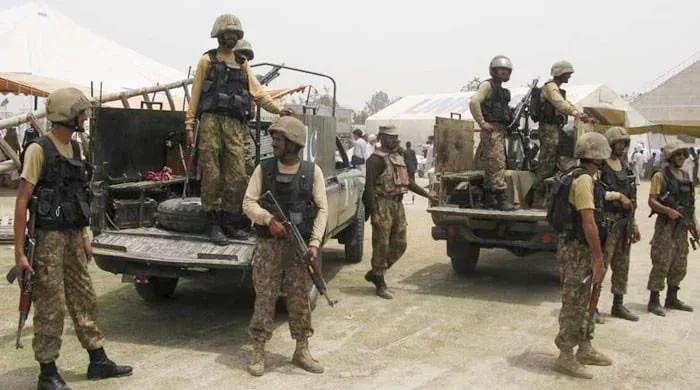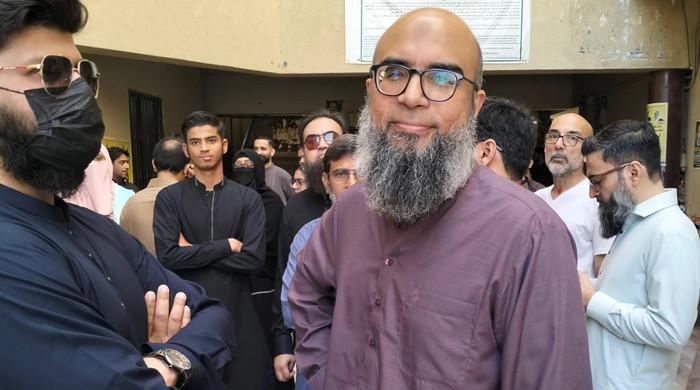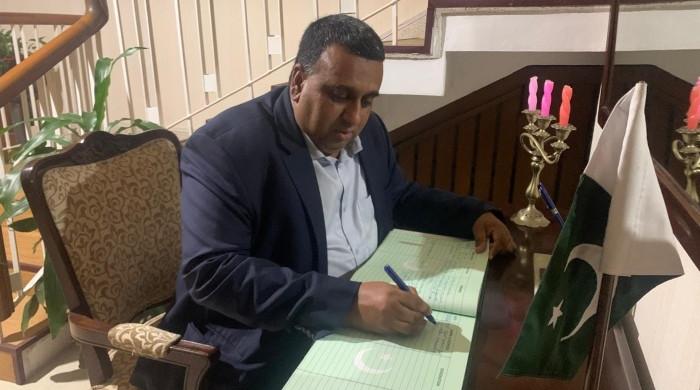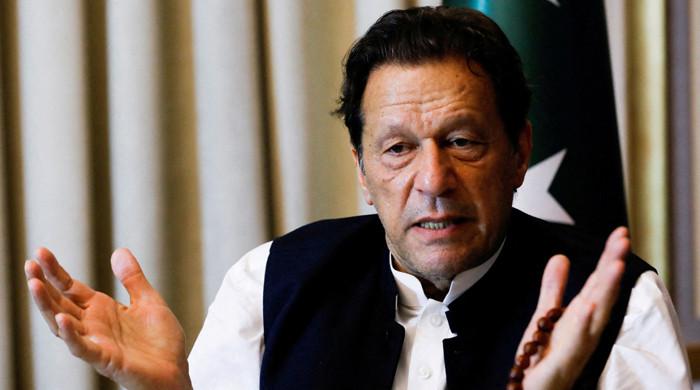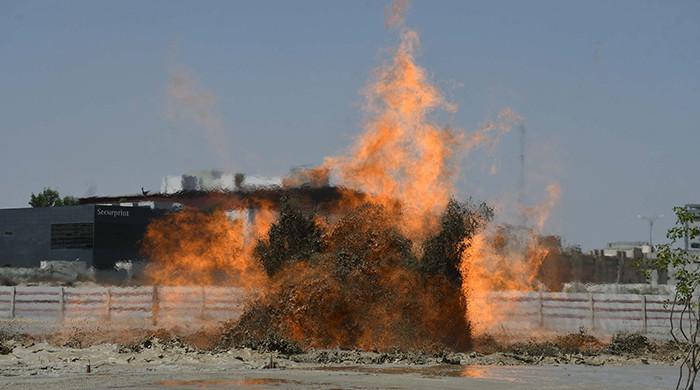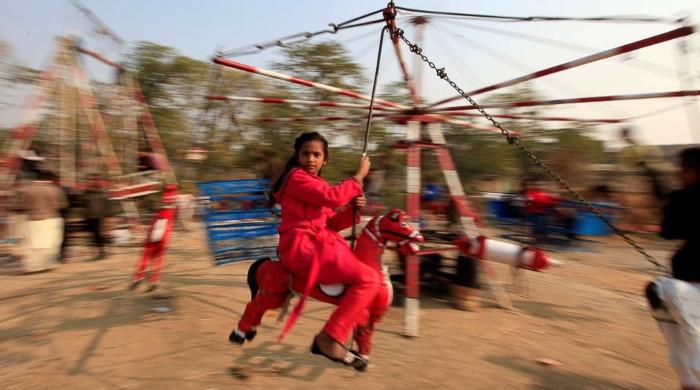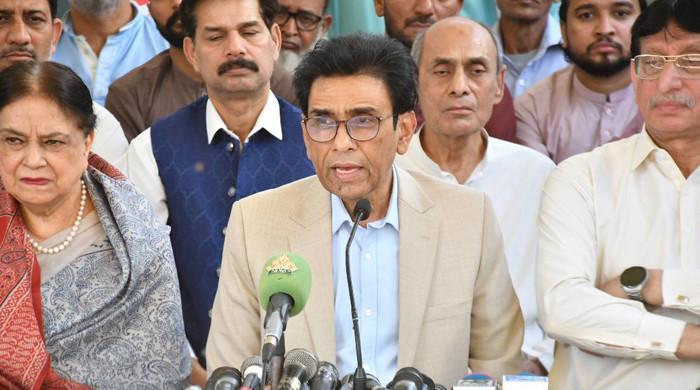Ehsaas Kafaalat programme: Next tranche to be released in coming week
SAPM Dr Nishtar says Ehsaas digital payment system encourages women to use ATMs, empowering them through financial inclusion
November 18, 2020
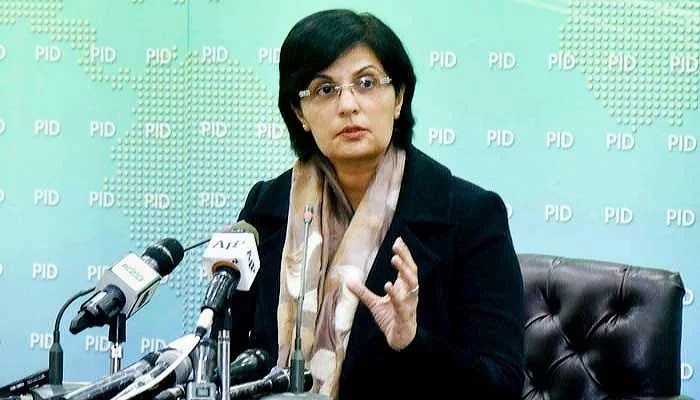
ISLAMABAD: The July-December 2020 tranche of the PTI government's Ehsaas Kafaalat programme is set to be released across Pakistan next week, a press release issued Wednesday read, with Prime Minister Imran Khan's aide on poverty alleviation encouraging financial inclusion of women.
In this regard, Dr Sania Nishtar, special assistant to the prime minister on poverty alleviation and social safety net, urged the beneficiaries of the Ehsaas Kafaalat programme to make use of automated teller machines (ATMs) for cash withdrawals.
Dr Nishtar also visited an HBL branch in Islamabad's Melody Market to assess preparations to improve the quality of cash withdrawal services through ATMs. There, she interacted with the beneficiaries and explained to them how to check their balance on an ATM.
The preparations for the launch of the Ehsaas Kafaalat programme's second tranche are underway in collaboration with partnering banks Habib Bank Limited (HBL) and Bank Alfalah Limited, with the former serving cash disbursals in Sindh, Punjab, and Balochistan, while the latter does the same across Khyber Pakhtunkhwa, Gilgit-Baltistan, and Azad Jammu and Kashmir.
Once the Kafaalat tranche is released, payment operations via biometric verification would be enabled across Pakistan to serve the programme's recipients.
Related: Here's how to avail a Rs12,000 grant from PM's Ehsaas emergency cash programme
During her visit, the special assistant also reviewed how the partnering banks provide a hospitable ambience for the marginalised segments who have never used the facilities at a financial institution, including relevant procedures to facilitate the beneficiaries through the new system of biometric verification.
The Ehsaas Kafaalat programme's beneficiaries are the destitute women with no other source of livelihood.
Commenting on the development, Dr Nishtar said: "The Ehsaas digital payment system encourages women to go to biometric ATMs and branches of banks, empowering them through financial inclusion.
"I would encourage Kafaalat beneficiary women to withdraw cash through ATM machines of designated partner banks, wherever possible. It will not just protect them from corrupt financial mistreatment, but bank branches and ATMs also serve them with a receipt detailing transparent record of available cash balance in their saving accounts."
In a meeting earlier this week with the two banks' presidents, she urged officials to make better use of ATMS to ensure that marginalised segments of the society had an option to access the bank premises.
Read more: Eligibility criteria for HEC Ehsaas Undergraduate Scholarship 2020
Citing the feedback she had received, Dr Nishtar mentioned that bank officers do not wish to engage in the hassle of serving long queues in many bank branches and, therefore, say ATMs are not open.
Emphasising that the use of ATMs was in the public interest, she said the Ehsaas Kafaalat programme's beneficiaries now had the choice to use biometrically-enabled ATMs, biometric retail shops or any biometrically-enabled branch of the relevant banks.
Last week, during an Ehsaas Kafaalat preparatory meeting he chaired, Prime Minister Imran Khan had granted the approval to increase the number of beneficiaries from 4.6 million to 7 million. The new deserving households would be identified following due diligence as per the programme's policy.
Separately, a poverty survey and data analysis was in the process of phase-wise completion across the country. Moreover, Ehsaas registration desks have been set up at the tehsil levels in each district to include any missing households.
However, the registration desks would be opened once the poverty survey in that particular district is completed.
Under the PTI government’s flagship social protection programme, cash stipends worth Rs2,000 a month and bank accounts are provided to the most deserving and poorest women across Pakistan.




